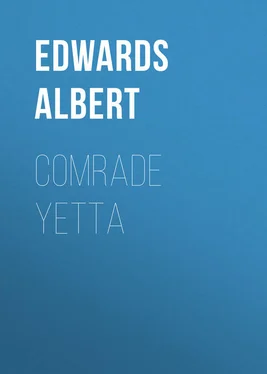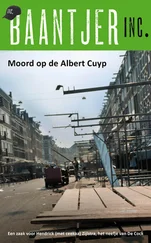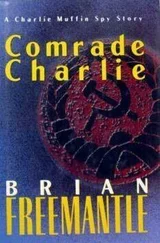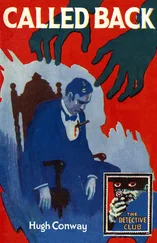Albert Edwards - Comrade Yetta
Здесь есть возможность читать онлайн «Albert Edwards - Comrade Yetta» — ознакомительный отрывок электронной книги совершенно бесплатно, а после прочтения отрывка купить полную версию. В некоторых случаях можно слушать аудио, скачать через торрент в формате fb2 и присутствует краткое содержание. Жанр: foreign_antique, foreign_prose, foreign_sf, на английском языке. Описание произведения, (предисловие) а так же отзывы посетителей доступны на портале библиотеки ЛибКат.
- Название:Comrade Yetta
- Автор:
- Жанр:
- Год:неизвестен
- ISBN:нет данных
- Рейтинг книги:4 / 5. Голосов: 1
-
Избранное:Добавить в избранное
- Отзывы:
-
Ваша оценка:
- 80
- 1
- 2
- 3
- 4
- 5
Comrade Yetta: краткое содержание, описание и аннотация
Предлагаем к чтению аннотацию, описание, краткое содержание или предисловие (зависит от того, что написал сам автор книги «Comrade Yetta»). Если вы не нашли необходимую информацию о книге — напишите в комментариях, мы постараемся отыскать её.
Comrade Yetta — читать онлайн ознакомительный отрывок
Ниже представлен текст книги, разбитый по страницам. Система сохранения места последней прочитанной страницы, позволяет с удобством читать онлайн бесплатно книгу «Comrade Yetta», без необходимости каждый раз заново искать на чём Вы остановились. Поставьте закладку, и сможете в любой момент перейти на страницу, на которой закончили чтение.
Интервал:
Закладка:
The drab monotony of her sweat-shop life was unbroken. The bosses changed frequently. So did the workers. But the process was unchanged – except that each new boss shaved the price per piece and pushed up the rate of speed. And then, after three years, a little flickering gleam of sunshine fell on Yetta's face. Rachel went to a ball.
Mrs. Goldstein objected to "dance-halls" because she was old fashioned and knew nothing about them. Mr. Goldstein objected because he knew them all too well. So when Rachel announced one night at supper that she was going to "The Mask and Civic Ball of the Hester Street Democratic Club," a storm broke loose. Mr. Goldstein – none too gently – threw his daughter into the bedroom and locked the door. Later in the evening he came home a shade more drunk than usual. Smashing some furniture to wake the household, he delivered a speech on the text of female respectability and where he would rather see his daughter than in a dance-hall. The "grave" was the least unattractive place he mentioned. Rachel seemed to give in before the family wrath.
But in her trade there were frequent rush periods when it was necessary to work after supper. One night she came home unusually late. As soon as she had put out the light and crawled into bed, she woke up the two girls and confided to them in great excitement that she had been to a ball. A girl in her shop had lent her some finery, a shirtwaist, a pair of white shoes, and a hat. Of course one could not go to a dance in a shawl. It had been "something grand." She kept them awake a long time telling of the fine dresses, the "swell" music, and the good-looking men. She was too "mad about it" to sleep. She jumped out of bed and, humming a popular tune, danced a waltz for them in her nightgown. She was very sleepy in the morning, but the music was still in her ears. The other girls were rather dismayed by her rank disobedience. The morose and spiteful Rosa threatened to tell her father. Rachel herself became frightened at this and promised never to do it again.
But not many days passed before Rachel announced at supper that she would have to work late that night. Somehow Yetta knew it was a pretext. She could hardly get to sleep. She woke up the moment Rachel tiptoed into the room.
"You've been again," she said.
"Sure. But don't wake up Rosa."
"It's very wrong."
It may be that Rachel, who was only nineteen and had been brought up blindfolded, did not see anything wrong in the two dances she had attended. There are many perfectly respectable dances on the East Side. Fate may have led her to such. Or perhaps she glossed over dangers she had seen. She denied Yetta's charge. Rosa snored regularly beside them, while the two girls whispered half the night through.
Rachel's defence, although some of it was only half expressed, – she was not used to talking frankly about holy things, – was sound. After all, women do not come into the world to spend their lives in sweat-shops. They ought to marry and bear children. What chance did she have? She saw no men in her factory. It might be all right to leave such things to one's parents – if they were the right kind. But every one knew her father was a penniless, shiftless drunkard. What sort of a match could he arrange for her?
She was going to as many dances as she could. First of all, they were fun, and precious little fun did she get trimming hats for other women to wear. And then – well – she was not ugly. Perhaps some nice young man would marry her. That very evening a "swell fellow" had danced with her four times. He had wanted to walk home with her. But she would not let him do that, till she was sure he was "serious." She would see him again at a dance on Saturday night, and she would find out. What other chance had she? Her father could do nothing for her. Nor her mother. Nor her brother. Well – she was of age, she would do for herself.
"And if I was as swell looking as you are, Yetta," she said, "I'd sure get a winner. Why don't you come to a dance with me?"
The next day at the lunch hour Yetta overheard some of the girls talking about dances. Instead of going off by herself, as she generally did, to consecrate her few minutes of leisure to memories of her father, she sat down and listened to them. Yetta did not know how to dance. But the next time a hurdy-gurdy came by at noon, she began with the help of her shopmates to learn. Although she made rapid progress, although she listened eagerly to Rachel's account of stolen gayeties, she did not give in to her cousin's urgings. Her natural timidity, joined to a habit of obedience, kept her from going to a dance.
But a new element had come into her life. She began to feel that in some shameful way she was being defrauded. Was she to know nothing of Life but the sweat-shop? Was her youth to slip away uselessly? Since Rachel had spoken of her looks, she sometimes lingered before the mirrors in store windows and wondered if her smooth skin was doomed to turn wrinkled and yellow like that of the women at her table. Was she never to have children? The future, which she had never thought about before, began to look dark and fearsome. She did not feel that anything of lasting good could be gained by sneaking out to a ball, but at least, as Rachel said, it must be fun. Was she never to have any fun? Were the years – one after another – to creep by without music or laughter? Sooner or later the craving for a larger life would have forced her out to adventure with Rachel, but the temptress was suddenly removed.
Isaac Goldstein encountered his sister at a dance. He had not been home for more than a week, but he came the next day and told his parents. When Rachel came in from work that evening, the drunken father denounced her as a disgrace to his fair name. Rachel listened in sullen silence to his foul abuse until, enraged by his own eloquence, he struck her. She turned very white and then suddenly laughed.
"Good-by, Yetta and Rosie!" And then, clenching her fist at her father, she cried out: "And you – you go to Hell."
She slammed the door behind her and never came back.
David Goldstein did not often trouble to go to the Synagogue, but the next Friday night he put on his old frock-coat and frayed silk hat and in the meeting-house of the men of Kovna, he read the Service for the Dead over his pleasure-loving daughter.
Yetta was surprised to find how much she missed her cousin. To be sure she had not seen much of her – they worked in different shops. But since they had shared this secret together, it had seemed almost like having a friend. It had never been a joyous household, and now with Rachel's occasional laughs gone it was bleak indeed.
But these confidences, short-lived as they were, had – in spite of their tragic ending – done their work with Yetta. They had suddenly opened a window in the wall of the dark room where she lived. Through it she saw, as through a glass darkly, a fair garden, lit with the sunlight of laughter, a garden where blossomed the wondrous flowers of music, of joy – of Romance.
Since the recent development of "Child Study," since grave and erudite professors have written learned volumes on the subject of "Play," many things, which former generations thought lightly of, have taken on importance. In the gurgling of a month-old baby we now see an experimentation with, a training of, the vocal apparatus which may later win the plaudits of a crowded opera or sway the council chamber of a nation. It is no longer senseless and rather disgusting noise. It is part of the profound development of Man. The haphazard muscular reflexes of a five-year-old boy – the running violently to nowhere in particular, the jumping over nothing at all – is no longer, as our grandfathers held, an aimless and sometimes bothersome amusement. A human being is getting acquainted with the intricate system of nerve complexes and motor-muscles which is to carry him through his allotted work in the world. And the little girl with her sawdust doll has become a portentous thing. If she does not learn to hold it properly at seven, her real babies, when she is twenty-seven, are likely to fare badly.
Читать дальшеИнтервал:
Закладка:
Похожие книги на «Comrade Yetta»
Представляем Вашему вниманию похожие книги на «Comrade Yetta» списком для выбора. Мы отобрали схожую по названию и смыслу литературу в надежде предоставить читателям больше вариантов отыскать новые, интересные, ещё непрочитанные произведения.
Обсуждение, отзывы о книге «Comrade Yetta» и просто собственные мнения читателей. Оставьте ваши комментарии, напишите, что Вы думаете о произведении, его смысле или главных героях. Укажите что конкретно понравилось, а что нет, и почему Вы так считаете.












